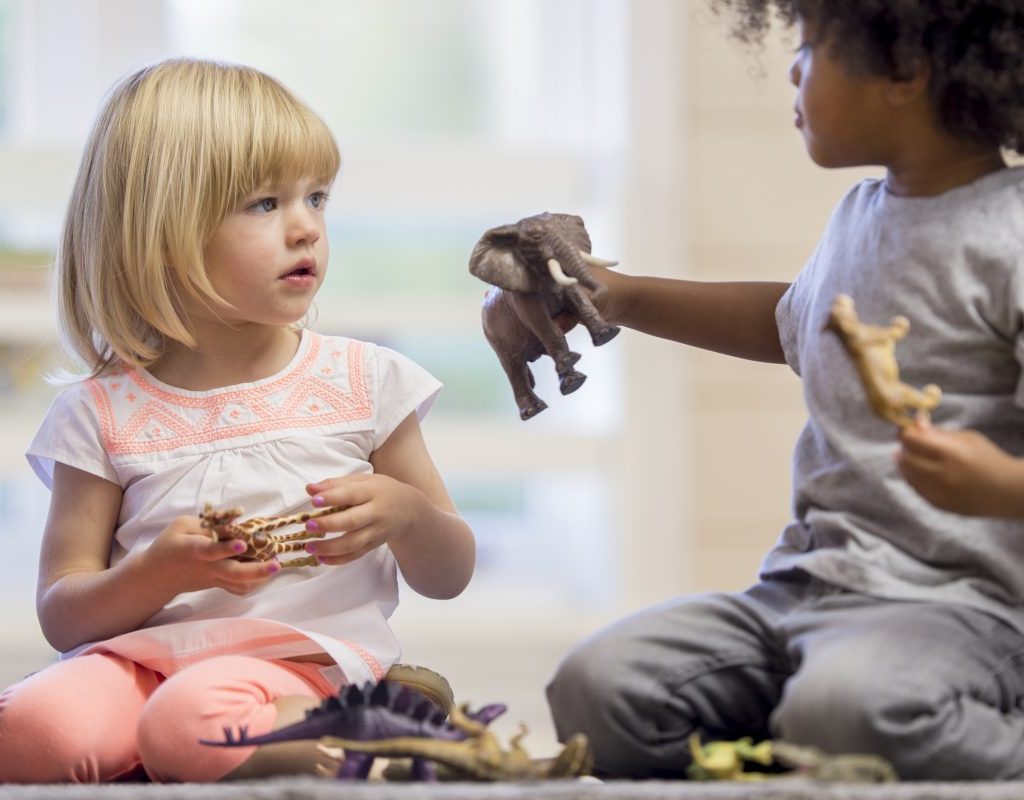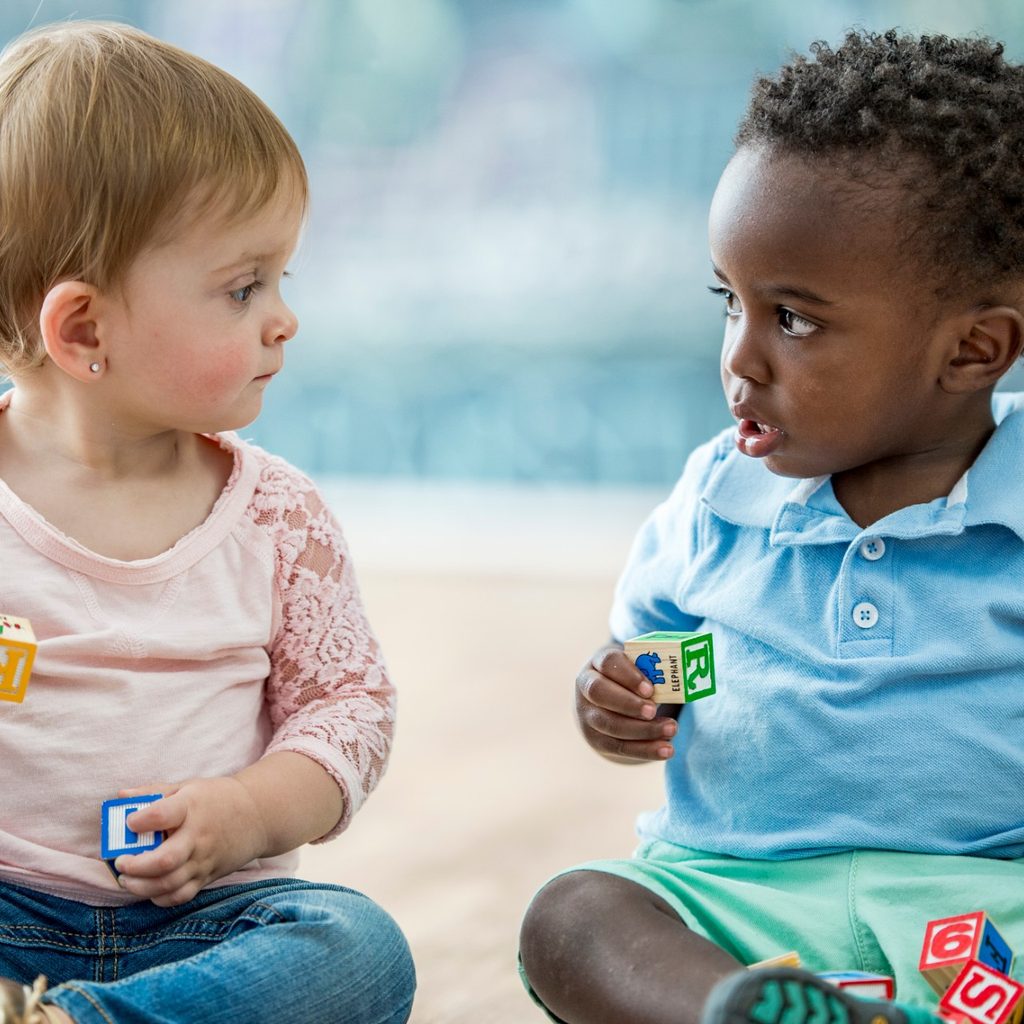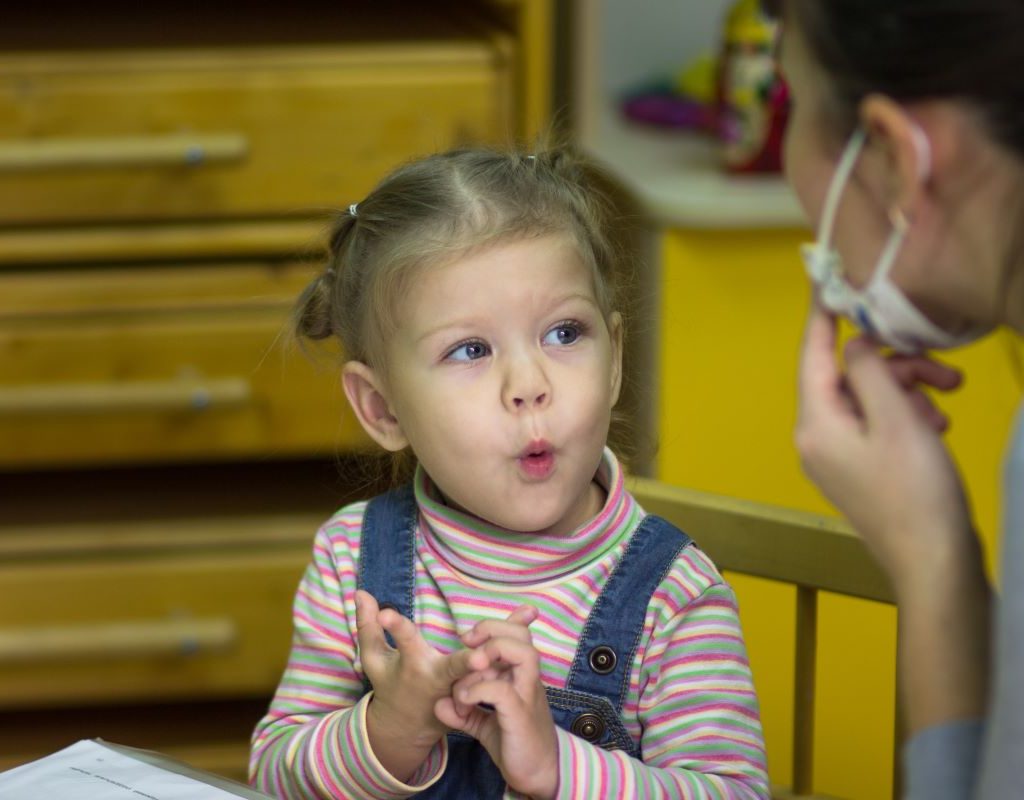
Thanks to social media, blogs, and YouTube channels of individuals who are constantly recording and updating the public on their child’s development it can make parents anxious as they start to compare their own child’s milestones. It can even cause a bit of anxiety if you notice your child’s “firsts” are different or delayed from others. Waiting for your child to be able to communicate with you instead of crying can seem like an eternity, so when they finally make those first sounds, it’s a welcome relief. The biggest question is often how to tell if your child has a speech delay. Once you figure that out, other questions like what causes speech delay in toddlers follow.
The number of words children regularly say at different ages varies greatly from child to child, but there are some guidelines that can help you figure out if there is a speech delay that needs interventions and treatments. According to Hanen Certified Speech-Language Pathologist Laura Lowry, “The “wait-and-see” approach to children who talk late is a result of misconceptions about typical language development.” Here are five signs to look for to tell if your toddler could have a speech delay.

They have trouble imitating sounds
There are many expected milestones for children, according to HealthyChildren.org, and delays across the board can typically encompass speech. Kids who are 18 months old or older should be able to imitate sounds. Once they are 2 years old, they should be able to say words beyond just imitating sounds. Copying you encouraging them to say “mama” and “dada” and using those simple words and ones like them should happen by 18 months.

They prefer gestures over vocalizations
If your child isn’t using gestures to communicate by 12 months old, it could be a sign of a speech delay. Gestures are an early way to communicate and a precursor to speech. However, if your child is 18 months old or older and still prefers gestures over making noises or saying words to communicate, that could be a sign of a speech delay. Babies should make cooing noises and other sounds as infants and if they don’t, that’s another red flag.

They can’t follow simple verbal instructions
At age 2, toddlers should be able to understand and follow simple directions like you asking them “Please bring me the toy.” While a speech delay is about a child not being able to speak (as opposed to a language delay that is broader), not being able to understand language is a warning sign of a delay to look out for. Practice using language to make requests of your toddler to test this (along with talking to them regularly to help them learn the language, of course).

They can’t pronounce words and be understood
Parents and caregivers should be able to understand about half of a child’s speech at 2 years old. At age 3, they should be able to understand 75%. Any 4-year-old should be well understood, even by strangers. If they have trouble remembering words they’ve already learned, that’s another reason to check in with a doctor.

They aren’t using at least 25 words at age 2
When a child is 2 and 3 years old, the list of words they say should reach a level that you can’t keep track of anymore. It could be a sign of a speech delay if they aren’t using at least 25 words by the age of 2, and it should explode to a much longer list by the end of that year. Children who are 2 years old should be able to use two-word combinations such as “bring ball” or “want eat.” While 25 words at age 1 is a cause for concern, most kids should be able to say 50 or more words on their second birthday.
There is a lot of variability in the recommended number of words by age because milestones are fluid and individual to each child. If a child is consistently “behind” in their milestones but moving forward at a consistent pace with them, that’s just their own timeline and not usually an issue. However, if your child is moving forward with all other development like walking but not with language, it could be a speech delay to have below 25-50 words when they turn two.

Speech delay in toddlers is more common than you may think
It can be a bit overwhelming to learn your toddler has a speech delay, but the reality is that speech delays are one of the most common types of developmental delays. According to Healthy Children, 1 in 5 children will experience some form of speech delay and learn to talk or use words later than their peers. A study published in the National Library of Medicine noted that between 5% and 12% of children between the ages of 2 and 5 years old have a diagnosed speech or language delay, with over half of those children experiencing those delays as they reach adolescence.
What causes speech delay in toddlers? There are many possibilities, including tongue-tie, disorders like childhood apraxia of speech, hearing loss, autism, neurological issues like cerebral palsy, or an intellectual disability. There are treatments and therapies for most causes of speech delay, but first, the cause needs to be diagnosed. Your pediatrician may refer you to an audiologist, neurologist, speech-language pathologist, or other specialist depending on what they suspect the cause may be.



